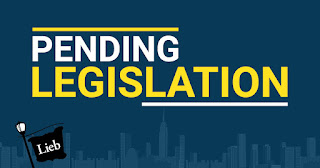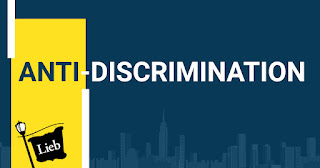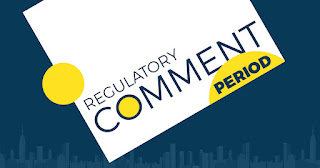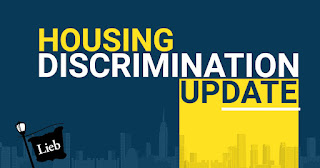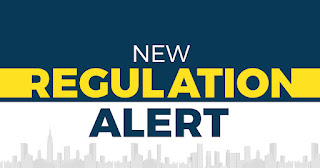Friday, July 01, 2022
Lieb at Law, P.C. Seeks Litigation Associate
Condo Meetings May be Electronic in NY - That Makes Sense
Governor Hochul signed A8185B and now condo meetings of unit owners may be held solely or partially by electronic communication as determined by the Board of Managers in its sole discretion.
We love when law embraces technology and provides for increased access for participation.
Thursday, June 30, 2022
CBS NY: NY State Legislature To Take Up New Gun Bill. Legal Analysis w/ Constitutional Attorney Andrew Lieb
Wednesday, June 29, 2022
CBS: Caution When Renting Swimming Pool. Analysis with Attorney Cheryl Berger
Court TV: Supreme Court Sides With HS Coach in Prayer Case. Analysis with Constitutional Attorney Andrew Lieb
Attorney Andrew Lieb joins Court TV to analyze the Supreme Court case with the High School Coach in Prayer.
Tuesday, June 28, 2022
CBS NY: Judge blocks NYC Law Allowing Noncitizens To Vote. Legal Analysis with Attorney Andrew Lieb
Andrew Lieb joins CBS NY and provides an analysis on the State's constitution regarding the judge blocking NYC law allowing noncitizens to vote.
Newsy: New Privacy Concerns For Employees Seeking To Get Abortions Out-Of-State w/ Attorney Andrew Lieb
Attorney Andrew Lieb joins Newsy to discuss new privacy concerns for employees seeking to get abortions out-of-state.
NewsNation: Supreme Court Rules For Former Coach in Public School Prayer Case. Analysis w/ Attorney Andrew Lieb
Attorney Andrew Lieb joins NewsNation to discuss the Supreme Court ruling for former coach in public school prayer case.
Monday, June 27, 2022
NewsNation: Supreme Court Overturns Roe v. Wade. Analysis with Andrew Lieb
COURT TV: Supreme Court Overturns Roe v. Wade. Analysis with Attorney Andrew Lieb
Attorney Andrew Lieb breaks down SCOTUS overturning Roe v. Wade on Court TV on 6/24/2022.
NEWS 12: Supreme Court Overturns Roe v. Wade. Legal Analysis With Attorney Andrew Lieb (Part 1)
Attorney Andrew Lieb analyzes SCOTUS overturning Roe v. Wade discussing a Florida lawsuit arguing that free exercise of religion is being jeopardized. Appearance on News 12 NY on 6/24/2022
Thursday, June 23, 2022
NEWS 12 Interview: Supreme Court Strikes Down NY Gun Concealed Carry Law. Analysis with Attorney Andrew Lieb
New Yorkers are now subject to the same rules as 43 other states which are shall issue gun permit states. Moving forward, only sensitive places like the legislature, polling places, and courthouses will be 100% free of guns. This interview aired on News 12 Long island at 12:3pm on 6/23/22
FOX 5 NY Interview: Supreme Court Strikes Down NY Concealed Gun Law with Attorney Andrew Lieb
Supreme Court Strikes Down New York Concealed Gun Law. The presumption now is that everyone has a right to have a gun because it is the "quintessential self-defense weapon" according to SCOTUS. After this case, states cannot premise gun regulations on the state's important interest, but instead the text of the constitution and its context from the history when it was written. Legal Analysis on FOX 5 NY with Attorney Andrew Lieb.
CBS Interview: Attorney Andrew Lieb Analysis on Rojas Found Not Responsible Due to Mental Illness in Deadly 2017 Times Square Crash
Richard Rojas Found Not Responsible Due to Mental Illness in Deadly 2017 Times Square Crash. Legal Analysis on CBS New York with Litigation Attorney Andrew Lieb.
Wednesday, June 22, 2022
NBC Interview: Attorney Andrew Lieb on Supreme Court Announcements on 6/21/22
Legal Analysis with Constitutional Attorney Andrew Lieb at Lieb at Law, P.C. Interview aired on NBC LX on 6/21/2022 at 12pm.
Tuesday, June 21, 2022
Newsy Interview: WWE CEO Vince McMahon Steps Down Amid Investigation. Analysis with Attorney Andrew Lieb
Thursday, June 16, 2022
Newsmax Interview: Attorney Andrew Lieb on Security For Supreme Court Justices
CBS Interview: Attorney Andrew Lieb On New Worries About The Future of Guns in NYC
How to Buy Real Estate in this Tough Market With Attorney/ Author Andrew...
Monday, June 13, 2022
Thursday, June 09, 2022
Attorney Andrew Lieb - News Reel
Need a Legal Analyst for your show? Check out Andrew Lieb's news reel here. Volume Up!
Monday, June 06, 2022
NY Statewide Salary Transparency Law Coming Soon
All companies hiring on work that can be performed in NY will soon need to advertise the job's compensation / wages.
A10477 has passed both houses of the NYS Congress and once signed by the Governor, it will go into effect 270 days later.
Interestingly, the law is very broadly written where it applies to advertising "a job, promotion, or transfer opportunity that can or will be performed, at least in part, in the state of New York." Notice the word can in there. Theoretically, this will make all remote work opportunities around the world be subject to this law.
The law, Labor Law 194-b, will require disclosure of both a job description and a range of compensation. Plus, employers will be required to keep records to prove compliance and there are big penalties for violations.
Employers Be Warned - HERO Act Penalties Coming per New Law
Back on May 5, 2021, NY established the Health and Essential Rights Act (HERO Act), which requires employers to take various measures to protect employees from future airborne infectious disease outbreak.
To remind you about the HERO Act:
- On June 7, 2021, we explained how Employers Must Immediately Adopt an Airborne Infectious Disease Exposure Prevention Plan.
- Next, on August 31, 2021, we noticed that Emergency Regulation Released to Guide Employers on Immediately Complying with NY HERO Act.
- Next, on November 17, 2021, we advised Attention NY Businesses - Emergency Regulation Issued to Implement NY HERO Act's Exposure Prevention Standard.
- Then, on January 20, 2022, we explained that NYS DOS Publishes Emergency Regulations to Implement NY HERO Act Rules.
Now, both houses of the NYS Congress have passed A10492, and once signed by Governor Hochul, employers will have 5 business days to recognize the establishment of workplace safety committees or face a civil penalty of not less than $50 per day until the violation is remedied.
If your company hasn't yet complied with the HERO Act, now is the day to get it done!
Friday, June 03, 2022
Wrongful Death Victim's Families Will Soon be able to Recover for Mental Anguish in NYS
Thursday, June 02, 2022
LGBTQ+ Advisory Board Passed by NYS Senate
On June 1, 2022, which was the start of Pride Month, the NYS Senate Passed S6501B to establish the LGBTQ+ Advisory Board to "[a]dvise the governor regarding the development of economic, professional, cultural, and educational links between New York state and the LGBTQ+ community in New York state and advise state agencies in developing policies designed to meet the needs of the LGBTQ+ community in New York state."
While this is a great move because having the community represented in Government is important, it's questionable why the law provides that all members of the new board must "identify as LGBTQ+".
What ever happened to allies being important in removing discrimination? Shouldn't we want experts on the topic to advise government irrespective of their personal orientation. Stated otherwise, shouldn't we want leaders in the study of health behavior, law, economics, etc. who have dedicated their careers to studying their field as it relates to the LGBTQ+ community rather than making lay anecdotal thought run the show?
Maybe the Assembly will be smart enough to change this clearly illogical restriction.
Pride Month: 5 Tips to Stop Sexual Orientation and Gender Identity Discrimination
- Don't Miss Deadlines: Federal discrimination lawsuits provide only 2 years from the wrongful act to bring a lawsuit. Some states extend this to 3 years. However, there are often much shorter timelines dependent on who the perpetrator is, so act immediately. To illustrate, employment discrimination generally requires a filing with the EEOC within 300 days. Plus, a collective bargaining agreement can limit the statute of limitations for union workers even further. Alternatively, if the government is the defendant, a notice may need to be filed within 3 months or less. So, act swiftly if you are a victim.
- Don't Forget the Past: Just because deadlines exist from the last act of discrimination, it's possible to leverage a law called the Continuing Violation Doctrine to reprise untimely acts of discrimination in a lawsuit. So, make sure that you bring every wrongful act that you have experienced to the table if you are a victim of discrimination. That is the only way it can be stopped.
- Discrimination is NOT Just Physical: If an environment is hostile and filled with harassment, that is enough to bring a lawsuit. In fact, states like New York lower the hostile environment standard from the federal rule of severe and pervasive to inferior terms and conditions so long as the harassment rises above petty slights and trivial inconveniences. If you feel harassed because of your orientation or gender identity speak up now.
- It Goes Beyond Your Actual Orientation and Gender Identity: Your actual sexual orientation and gender identity are clearly protected from discrimination, but did you know that you are protected from discrimination even if the perpetrator got it wrong. The law also protects your perceived orientation and identity, which is particularly important for orientation because orientation needn't be confirmed from consistent sexual acts to exist.
- Retaliation is Illegal: Don't be afraid to speak up out of fear of reprisal. Simply, if you experience any negative retaliation whatsoever when you are fighting back against discrimination that you are experiencing, you can sue for that retaliation too. If retaliation happens at work, housing, education, places of public accommodation, or many other places, you can receive money damages for retaliation plus the court can order it stopped with your prior situation restored.
Litigation Attorney Needed | Lieb at Law is Hiring!
Lieb at Law, P.C. seeks litigation attorney to focus practice on complex litigation including employment and discrimination, real estate litigation, and commercial litigation.
Desired qualifications:
- 2+ Years of Litigation Experience
- Persuasive Motion Writer
- Proficient in Legal Research
- Oral Arguments, Hearings
The firm’s practice areas include:
- Employment & Discrimination Litigation: Workplace Discrimination, Housing Discrimination, Education Discrimination, Family Medical Leave ACt, Harassment, Retaliation, Restrictive Covenants, Wage & Hour, Whistleblower
- Employment Litigation, Compliance and Trainings: Discrimination, Harassment, Retaliation, Wage and Hour, Restrictive Covenants, Family Medical Leave Act, Alternative Dispute Resolution, Appeals, Employee Handbooks and Policies, Sexual Harassment and Discrimination Training, Wage and Hour Audits & more.
- Real Estate Litigation: Real Estate Brokerage; Construction, Constructive Trust, Contractual Disputes, Cooperative & Condominium, Fair Housing & Discrimination, Commercial Evictions, Partition Action, Premises Liability, Title Insurance, Foreclosure
- Legal Compliance for Regulated Industries: Outside Compliance Counsel for regulated professions, Policy Drafting, Policy Implementation, Auditing, Corporate Compliance Trainings.
Qualifications:
Excellent critical thinking, writing, organization and research (Westlaw) skills. Must be technologically savvy.
About Lieb at Law, P.C.:
Lieb at Law, P.C. is a litigation boutique law firm, which focuses on discrimination claims in employment and housing.
We also litigate commercial disputes, real estate brokerage commission / fiduciary duty / ethics matters, breach of contract cases, title claims, landlord / tenant evictions, mortgage foreclosure actions, plaintiff's personal injury, and all employment matters, such as wage and hour claims and whistleblower actions.
Beyond litigation, the firm also offers outside general counsel advice and counsel to its corporate clients.
Our attorneys are admitted to practice law in New York, New Jersey, Connecticut, and Colorado while also practicing in the Federal Courts.
The firm's culture is driven by it's three-pillars of success: Self-confidence, Grit, and Skill.
We support our culture with an emphasis on leveraging technology. Staff have access to a cloud-based legal research platform so that the latest cases are available everywhere, including at home and in the courtroom. We have a secure, cloud-based case management system that catalogs every thought and action on each matter so that case facts are readily accessible at the stroke of a computer key. Finally, enterprise file sharing, storage, and collaboration software is leveraged to enable the efficient collaboration between attorneys where case strategy and document preparation is fresh and innovative.
Beyond our representation of individual clients and companies, our managing partner also serves as a media legal analyst, who regularly appears on TV / radio nationwide. This sets the tone for our law firm where our attorneys teach the law, rather than learning from others, at continuing education events and corporate trainings.
In all, Lieb at Law, P.C. is on the cutting edge of new statutes, regulations, and cases, which gives us a strategic advantage in the courtroom and in your representation.
Resumes to careers@liebatlaw.com
Wednesday, June 01, 2022
What Rights Does an Employee have if Penalized for Using Legally Protected Absences in NYS?
An employee who was discharged, threatened, penalized, or in any other manner discriminated or retaliated against because such employee used any legally protected absence pursuant to federal, local, or state law will soon be able to bring a lawsuit against their employer now that S1958A has passed both the NYS Assembly & Senate.
In fact, such an employee will have 2 years after the violation to sue and recover lost compensation and damages, liquidated damages of up to $20,000, costs and reasonable attorneys' fees. Plus, the Court can order rehiring or reinstatement and restoration of seniority. Alternatively, in lieu of reinstatement, an award of front pay can be awarded.
Employers better learn and provide legal days off ASAP.
Can Crime Victims Sue for Dissemination & Publication of their Personal Image in NYS?
Any crime victim who was depicted in a still or video image, which was disseminated or published, will soon be able to sue the disseminator or publisher for injunctive relief, punitive damages, compensatory damages and reasonable court costs and attorneys' fees.
The law, Civil Rights Law 52-b (S7211B) has passed the NYS Congress and only needs to be signed by the Governor to be enacted.
Wednesday, May 25, 2022
New Housing Discrimination Notice on Source of Income Discrimination Proposed - Comment Period Open
On May 25, 2022, the NYS Division of Human Rights proposed 9 NYCRR 466.16, which will require any entity that administers any public housing program or assistance to provide a detailed notice of rights from source of income discrimination. The enabling statute, Executive Law 170-e, explains that an entity that administers includes "any state, county, municipal or other governmental entity. . . or any agency or instrumentality of such an entity, and any public or private non-profit entity authorized to administer any public housing program or assistance."
Specifically, "[t]he notice is to advise individuals of their right to nondiscrimination based on lawful source of income in housing pursuant to Human Rights Law section 296.2-a (publicly-assisted housing) or Human Rights Law section 296.5 (private housing)" pursuant to the regulation.
The notice must be provided as follows:
- Current recipients must receive notice within 30 days after the effective date of the regulation;
- Future recipients must receive notice "upon notification such individual qualifies for the voucher or assistance";
- "In writing, and in 14 point... font";
- Electronically is permissible by a link to the notice; &
- On all websites administered by the entity.
KNOW YOUR LEGAL RIGHTS AS A RECIPIENT OF HOUSING ASSISTANCE
By law, you are protected from housing discrimination.
Tuesday, May 24, 2022
Adult Sex Offense Victims Granted More Time to Sue for Damages in NYS
Sex offense victims can now bring lawsuits in New York State even if they were previously outside of the statute of limitations or otherwise barred from not timely filing notices, etc.
Stated otherwise, expired sex offense claims have been revived by S66A, the Adult Survivors Act.
The legislation applies to survivors of sexual offenses who were adults (i.e., 18 or older) at the time of the alleged sexual offense.
It is important that victims realize that they will only have a ONE YEAR window to bring claims so they must contact an attorney immediately and get the ball rolling now. Of note, that one year window starts on November 24, 2022 so there is time for your attorney to get all their ducks in a row and bring a strong case.
Monday, May 23, 2022
Housing Discrimination FAQs
Is real estate discrimination illegal?
Yes. Discrimination in real estate is illegal throughout the United States. In some states, like New York, there are even greater protections, rights, and damages available to victims of housing discrimination. You are entitled to compensation whether you were discriminated against by a seller, landlord, tenant co-op, condo, HOA, lender, real estate broker, salesperson, or property manager.
Does real estate discrimination only apply to housing?
No. Real Estate discrimination laws apply to both housing and places of public accommodation. Examples include shopping centers, professional offices, retail stores, recreational facilities, service centers, and educational institutions.
Can I sue for housing discrimination?
Yes. Not only is it possible to sue for real estate discrimination, but Lieb at Law, P.C. has helped countless individuals recover compensatory damages and punitive damages for the emotional distress inflicted by this unlawful act. If you or a loved one were discriminated against because of your protected status or class, it is critical to work with an experienced attorney who will fight to ensure that you receive the compensation you deserve.
What qualifies as discrimination?
Discrimination is classified as unfair treatment to an individual because of their protected status or class. These statuses/classes vary throughout the United States, but may include race, ethnic background, visible traits (hair texture, hairstyle, donning of religious garments or items), color, national origin, citizenship status, alienage status, immigration status, lawful source of income (subsidy recipient status), occupation, religion, creed, marital status, partnership status, sex, gender, sexual orientation, gender identity or expression (transgender status), domestic violence victim status, stalking victim status, sex offense victim status, familial status, pregnancy, presence of children, handicap (disability), age, military status, uniformed service, veteran status, first responder status, arrest record, and sealed conviction record.
Can a real estate / housing provider change the terms of a lease or contract based on my protected class?
No. The law prevents real estate / housing providers from changing the terms, conditions, privileges, and/or availability of property based on your protected class status. It requires real estate brokers / salespersons to give you written disclosures that advise you of your rights. It prevents you from being treated differently from others where only the terms of your offer matter, not who you are.
Are handicapped individuals entitled to housing accommodations?
Yes. If you are handicapped or disabled, you are entitled to receive reasonable accommodations and reasonable modifications to allow you to equally use and enjoy the property. Your actual diagnosis does not need to be revealed and can remain confidential if you seek an accommodation or modification. In addition, the cost of the accommodation cannot be charged to you. In places like New York City, the cost of modifications cannot be charged to you either.
What are common examples of disability cases concerning housing discrimination?
The most common handicap and disability cases that we see involve service animals or emotional support animals in no pet properties. Other types of cases include parking issues, egress ramps for mobility impairments, and additional failure-to-accommodate cases. When it comes to accommodating the rights of handicapped and disabled individuals, providing access is essential.
Can I be discriminated against based on my source of income?
Whether you receive subsidies, like Section 8 (Housing Choice Vouchers), or are unemployed and receive child support, disability, spousal support, or have a trust fund, your source of income cannot impact your housing choices. The law protects you from offensive signage, improper applications, and/or wrongful questionnaires if they inquire about your employment status, request your W-2, or solicit a letter of employment. Where you get your rent money is your business and yours alone.
Can I be retaliated against if I proceed with a discrimination lawsuit?
Don't be afraid to speak-up. If you are advancing a fair housing and/or anti-discrimination right, you are protected from retaliation. Even if it is ultimately found that you were not discriminated against, you can be compensated for facing unlawful coercion, intimidation, threats, or other types of interference with your anti-discrimination rights. It also applies if you are an ally who is aiding and/or encouraging someone else to exercise their rights to be free from discrimination.
What happens if I win my housing discrimination case?
As the victim, you can recover compensatory damages, punitive damages, and your attorneys’ fees. The perpetrator can lose their license (if applicable), be required to take trainings, be made to pay fines, and be ordered to stop their offensive behavior. Working with a top discrimination attorney affords you the best possible chance at a successful outcome to your case. If you or a loved one has been treated unfairly and is in need of legal assistance, contact our team today.
Thursday, May 19, 2022
Education Discrimination FAQs
Is discrimination in school illegal?
Yes, discrimination in education is illegal
in the United States. Depending on the state you live in, there may be even
greater protections, rights, and damages available to victims and their parents.
A student cannot be denied a right to learn.
Who can be a perpetrator
of discrimination in education?
When it
comes to education, you and your child have a right to be free from harassment,
bullying and other forms of wrongful discrimination that is perpetrated by
teachers, the administration, or even other students. This applies to public
schools, non-religious private schools, career schools, colleges, and
universities.
Does discrimination have
to be intentional to warrant compensation?
Anti-discrimination
laws in education apply regardless of whether the discrimination is explicit or
implicit. It is the administration's duty to make education equally accessible
to all and this failure can result in a lawsuit.
What are the most common types
of discrimination at school?
Types of
discrimination at school include bullying of minorities, the failure to give
testing accommodations to disabled students, and the failure to extend days off
to religious observers. Additional types of discrimination include equal access
to sports between the sexes / genders, and teachers having sex with their
students.
What are the federal
protections available for discrimination at school?
Title IX
of the Educational Amendments protects against sex discrimination while Title
VI of the Civil Rights Act addresses race, color, and national origin
discrimination, and finally Title II of the Americans with Disabilities Act
(ADA) protects against disability discrimination. However, these federal laws on education discrimination were limited
by the Supreme Court in 2022 and can, mostly, no longer result in victims
receiving emotional distress or punitive damages.
What are New York State
protections available for discrimination at school?
New York
provides victims with the right to recover for their emotional distress and
punitive damages. Additionally, New York adds protections by covering victims
of discrimination with respect to more categories, such as race, color,
religion, disability, national origin, sexual orientation, military status,
sex, age, and marital status. New York even makes clear that its own public
school districts can be held accountable for discrimination based on an
amendment to its laws from July 25, 2019, A3425.
How long do I have to sue
for education discrimination in New York?
If
you or your child were a victim of education discrimination, it is important to
act quickly and file your claim after hiring a lawyer. In New York State,
claims against public school districts must be filed within 3 months after the
discriminatory event. While the State's anti-discrimination laws otherwise
provide up to 3 years for lawsuits against non-public schools (i.e., private
schools / colleges / universities), it's important to act quickly to preserve
all the discriminatory evidence (i.e., audio / video), which is done by
immediately sending what is known as a spoliation notice.
What can victims of education discrimination in New York
recover in compensation?
Discrimination
victims, in New York, can recover compensatory damages (being made whole with
emotional distress damages), punitive damages (punishment damages), and your
attorneys' fees. The perpetrator can lose their license (if licensed as
educators or otherwise), be required to take trainings, and be ordered to stop
their offensive behavior. There are fines and more.
Can I be retaliated
against for speaking out against discrimination at school?
Don't be
afraid to speak-up. If you are advancing an anti-discrimination right for
yourself or your child, you are protected from retaliation. Even if it is
ultimately found that you or your child was not discriminated against, you both
can nonetheless be compensated for facing unlawful coercion, intimidation,
threats, or other types of interference with your anti-discrimination rights.
Again, this is not just true if you are advancing your own rights, it also
applies if you are raising your child's rights, or another student's rights,
because anti-retaliation laws protect anyone who aids and/or encourages someone
else in exercising their rights to be free from discrimination. Give
us a call.
*Attorney Advertising
Wednesday, May 18, 2022
Major New RE Landlord / Tenant & Brokerage Regulatory Law in NYS - BOOM
New York tenants will be receiving new notices about their rights to reasonable modifications and accommodations for persons with disabilities as of today.
The Division of Human Rights has officially adopted 9 NYCRR 466.15 - see our prior blog on the topic here.
The new law places a tremendous onus, with awesome exposure, on the following people: "the owner, lessee, sub-lessee, assignee, or managing agent of, or other person having the right to sell, rent or lease a housing accommodation, constructed or to be constructed, or any agent or employee thereof." The law applies to both private property and publicly-assisted housing.
There is a special section in the law just for real estate brokers, who are now obligated to provide the notice at the first point of substantive contact.
Plus, every obligee must also prominently and conspicuously display a link to the notice "on the homepage of such website." Unfortunately, the link, which is supposed to "be made available by the Division," is not so available.
Nonetheless, here is the official notice and it's language (if you haven't realized it yet, housing providers and their real estate brokers better get up to speed on providing reasonable accommodations and modifications today. Failure-to-accommodate lawsuits are about to be filed with record speed / frequency):
NOTICE DISCLOSING TENANTS’ RIGHTS TO REASONABLE ACCOMMODATIONS FOR PERSONS WITH DISABILITIES Reasonable Accommodations The New York State Human Rights Law requires housing providers to make reasonable accommodations or modifications to a building or living space to meet the needs of people with disabilities. For example, if you have a physical, mental, or medical impairment, you can ask your housing provider to make the common areas of your building accessible, or to change certain policies to meet your needs.
To request a reasonable accommodation, you should contact your property manager by calling ______________ or ______________, or by e-mailing ______________. (note: brokers may delete "by calling ______________ or ______________, or by e-mailing ______________.)
You will need to inform your housing provider that you have a disability or health problem that interferes with your use of housing, and that your request for accommodation may be necessary to provide you equal access and opportunity to use and enjoy your housing or the amenities and services normally offered by your housing provider. A housing provider may request medical information, when necessary to support that there is a covered disability and that the need for the accommodation is disability related.
If you believe that you have been denied a reasonable accommodation for your disability, or that you were denied housing or retaliated against because you requested a reasonable accommodation, you can file a complaint with the New York State Division of Human Rights as described at the end of this notice.
Specifically, if you have a physical, mental, or medical impairment, you can request:
- Permission to change the interior of your housing unit to make it accessible (however, you are required to pay for these modifications, and in the case of a rental your housing provider may require that you restore the unit to its original condition when you move out);
- Changes to your housing provider’s rules, policies, practices, or services;
- Changes to common areas of the building so you have an equal opportunity to use the building. The New York State Human Rights Law requires housing providers to pay for reasonable modifications to common use areas.
Examples of reasonable modifications and accommodations that may be requested under the New York State Human Rights Law include:
- If you have a mobility impairment, your housing provider may be required to provide you with a ramp or other reasonable means to permit you to enter and exit the building.
- If your healthcare provider provides documentation that having an animal will assist with your disability, you should be permitted to have the animal in your home despite a “no pet” rule.
- If you need grab bars in your bathroom, you can request permission to install them at your own expense. If your housing was built for first occupancy after March 13, 1991 and the walls need to be reinforced for grab bars, your housing provider must pay for that to be done.
- If you have an impairment that requires a parking space close to your unit, you can request your housing provider to provide you with that parking space, or place you at the top of a waiting list if no adjacent spot is available.
- If you have a visual impairment and require printed notices in an alternative format such as large print font, or need notices to be made available to you electronically, you can request that accommodation from your landlord.
Required Accessibility Standards
All buildings constructed for use after March 13, 1991, are required to meet the following standards:
- Public and common areas must be readily accessible to and usable by persons with disabilities;
- All doors must be sufficiently wide to allow passage by persons in wheelchairs; and
- All multi-family buildings must contain accessible passageways, fixtures, outlets, thermostats, bathrooms, and kitchens.
If you believe that your building does not meet the required accessibility standards, you can file a complaint with the New York State Division of Human Rights.
How to File a Complaint
A complaint must be filed with the Division within one year of the alleged discriminatory act or in court within three years of the alleged discriminatory act. You can find more information on your rights, and on the procedures for filing a complaint, by going to www.dhr.ny.gov, or by calling 1-888-392-3644. You can obtain a complaint form on the website, or one can be e-mailed or mailed to you. You can also call or e-mail a Division regional office. The regional offices are listed on the website.


